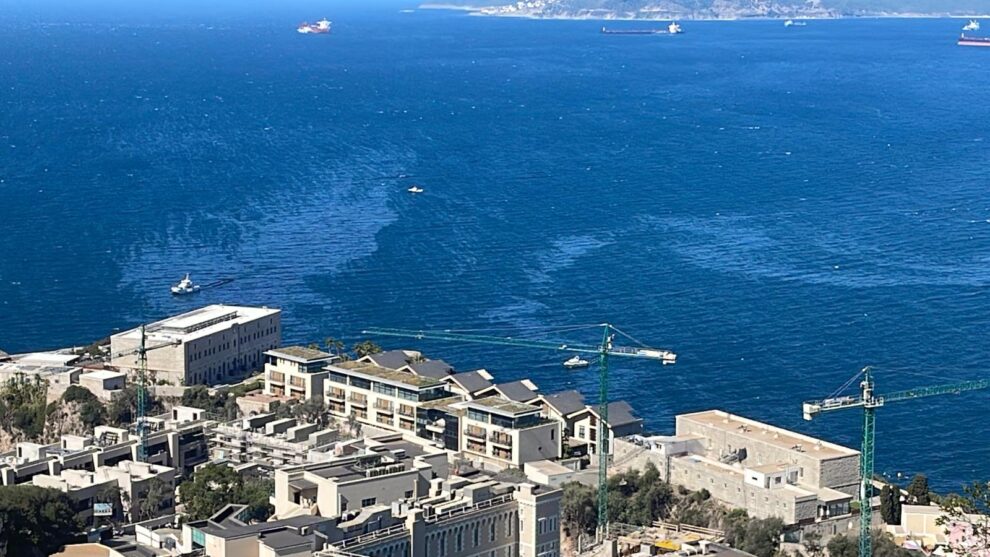The Spanish Foreign Ministry has lodged a formal complaint with the UK’s embassy in Madrid over what Madrid deems to be three ‘serious incidents’ in waters near the Rock of Gibraltar in August. According to a ministry source in touch with EURACTIV’s partner EFE, a verbal note issued on Monday conveyed the “strongest protest” by the ministry, led by Foreign Minister José Manuel Albares, regarding the activities of several vessels that allegedly crossed into Spanish waters, insisting that Spain does not recognise British/Gibraltar maritime space except in the waters inside the port.
Outlining the three incidents that prompted these diplomatic protests, the Spanish foreign ministry indicated that on 1 August, the Gas Venus methane tanker caused a significant fuel spill in the waters of Algeciras Bay while refuelling from another ship at sea. The second incident unfolded on 14 August, when the Colombo II vessel of the Customs Surveillance Service (SVA) was “obstructed” in its duties, as per the verbal note, by three vessels belonging to the United Kingdom Customs Service and the Royal Navy, triggering what was described as a “risky situation”.
The third episode that resulted in a protest happened on 21 August and involved the harassment of the fishing boat Mi Daniela by “British State vessels”. The note claimed these vessels operated within Spanish waters near the rock in a “clear violation” of Spanish sovereignty and exceeding their jurisdiction. The Rock of Gibraltar, a small piece of land at the southern end of the Spanish coast, has been under British control since 1713.
The Spanish protest underlined that, after verifying incidents, the country’s stance on Gibraltar “remains unchanged”. The note pointed out that Spain does not acknowledge any rights or situations that the United Kingdom claims concerning maritime spaces of Gibraltar not covered by Article X of the 1713 Treaty of Utrecht. Furthermore, the note asserted that Spain would persist in exercising “its sovereignty” in Spanish waters as it has done “since times immemorial.”
Source: EURACTIV











